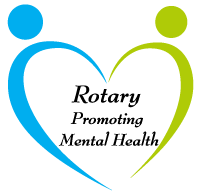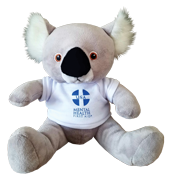

YOU ARE NOT ALONE, I WILL LISTEN...
LET'S TALK.
When you don’t know where to start,
Get confidential and immediate support 24 hours every day of the year.
Get Help Now
1-844-493-TALK (8255)
Text “TALK” to 38255
If you're experiencing a life-threatening emergency, call 911.


Algee says,
"Be A Lifeline
For Others"
Latest News:
October 25, 2018
MHFA for Vets
8:00 am - 4:30 pm
Vets Resource Fair
11:00 am - 5:00 pm
Bison Ridge Recreation Center
13905 E 112th Ave, Commerce City
See the Channel 7 News coverage at: https://www.thedenverchannel.com/news/front-range/commerce-city/classes-are-offered-for-family-and-loved-ones-of-veterans-to-learn-about-military-mental-health
Sunday, Nov. 11, 2018
Vet to Vet Tribute Dinner
5:00 pm
100th Anniversary of Armistice Day
Bison Ridge Recreation Center
13905 E 112th Ave, Commerce City
Please RSVP to Lisa Riggi at: L6881ar@gmail.com
Mental Health and Mental Illnesses Defined
Mental Health
- The World Health Organization has defined mental health as follows: Mental health can be conceptualized as a state of well-being in which the individual realizes his or her own abilities, can cope with the normal stresses of life, can work productively and fruitfully, and is able to make a contribution to his or her community.
- Mental health can be seen as a continuum ranging from having good mental health to mental disorders. A person can vary along this continuum at different points in his or her life.
Mental Health Disorder
- Mental disorder or mental illness is a diagnosable illness that affects a person’s thinking, emotional state, and behavior and disrupts the person’s ability to work or carry out daily activities and engage in satisfying personal relationships.
- Mental Disorders include depression and anxiety, schizophrenia, bipolar disorder and substance abuse. Sometimes mental disorders lead to short-term or long-term disability. This is a factor not often appreciated by people who have never experienced a mental disorder.
Types of Disorders:
Bipolar Disorder
Bipolar disorder is a chronic illness with recurring episodes of mania and depression that can last from one day to months. This mental illness causes unusual and dramatic shifts in mood, energy and the ability to think clearly. Cycles of periods of depression, periods of mania, and long periods of normal mood in between.
Major Depression
Depression or depressive disorder may involve one or more of the following: feelings of melancholy, loss of energy and/or appetite, insomnia or hypersomnia and/or a loss of interest in others, sex and life generally. A major depressive disorder lasts for at least two weeks and affects a person’s ability to work, to carry out usual daily activities, and to have satisfying personal relationships.
Obsessive Compulsive Disorder (OCD)
Obsessive-compulsive disorder (OCD) is a serious mental illness with symptoms that can grow progressively worse until the person is consumed with behaviors that gravely disrupt their lives. People in the grips of OCD find themselves filled with obsessive thoughts of recurrent impulses and images that are experienced as intrusive, unwanted and cause marked anxiety.
Panic Disorder
Panic disorder paralyzes people with overwhelming anxiety and fear. It affects an estimated 2.4 million people in the United States annually. It is a severe disorder in the family of chronic anxiety disorders.
Post-Traumatic Stress Syndrome/Post Traumatic Stress Disorder
Post-Traumatic Stress Syndrome/Post Traumatic Stress Disorder (PTSS/PTSD) is a debilitating anxiety disorder that fills people with fear and recurring terror. It typically stems from a distressing or catastrophic event or series of threatening or violent incidents that happened to them in the past. Response to the event involves intense fear, helplessness or horror.
Psychosis
Psychosis (psyche = mind, osis = illness) is defined as the experience of loss of contact with reality, and is not part of the person’s cultural group belief system or experience.
Schizoaffective Disorder
Schizoaffective disorder is one of the more common, chronic, and disabling mental illnesses. As the name implies, it is characterized by a combination of symptoms of schizophrenia and an affective (mood) disorder.
Schizophrenia
Interfering with a person's ability to think clearly, manage emotions, make decisions and relate to others, schizophrenia impairs a person's ability to function. People with schizophrenia and other disorders in which psychosis can occur need to be regarded with optimism for a good outcome. They need to live in a stable and secure social environment. This includes a pleasant home environment, support from family and friends, adequate income and meaningful role in society.
For additional information on these and other mental disorders, visit: National Institute of Health (http://www.nimh.nih.gov/index.shtml)
Impact of Mental Disorders on Society
Mental disorders are common in the United States.
- 1 in 4 American adults (61.5 million) will experience a mental health issue in any given year.
- 20% of youth (15 million) struggle with a mental health crisis in any one year.
- Serious mental illness costs America $193.2 billion in lost earnings annually.
- Medical experts rate mental disorders among the most disabling illnesses. Often the illness leads to premature death. Disability is the disruption a health problem causes to a person’s ability to work, care for himself or herself, and carry on relationships.
- Average of 22 veterans will take their life each day to a mental illness
- However, because disability caused by mental disorders may not be visible to others,
people with mental disorders can be negatively judged as being weak, lazy, uncooperative,
or not really ill.
© 2017 Rotary Club of Commerce City • PO Box 1882, Commerce City, CO 80037
"To Advocate for Healthier Minds and Communities through Awareness and Education”
All Rights Reserved | Website by Lead Group Design | Terms of Use